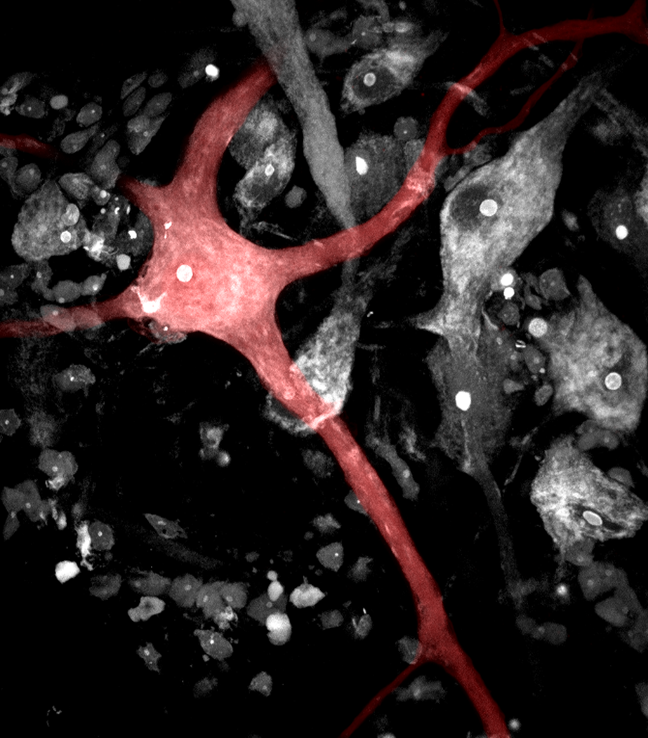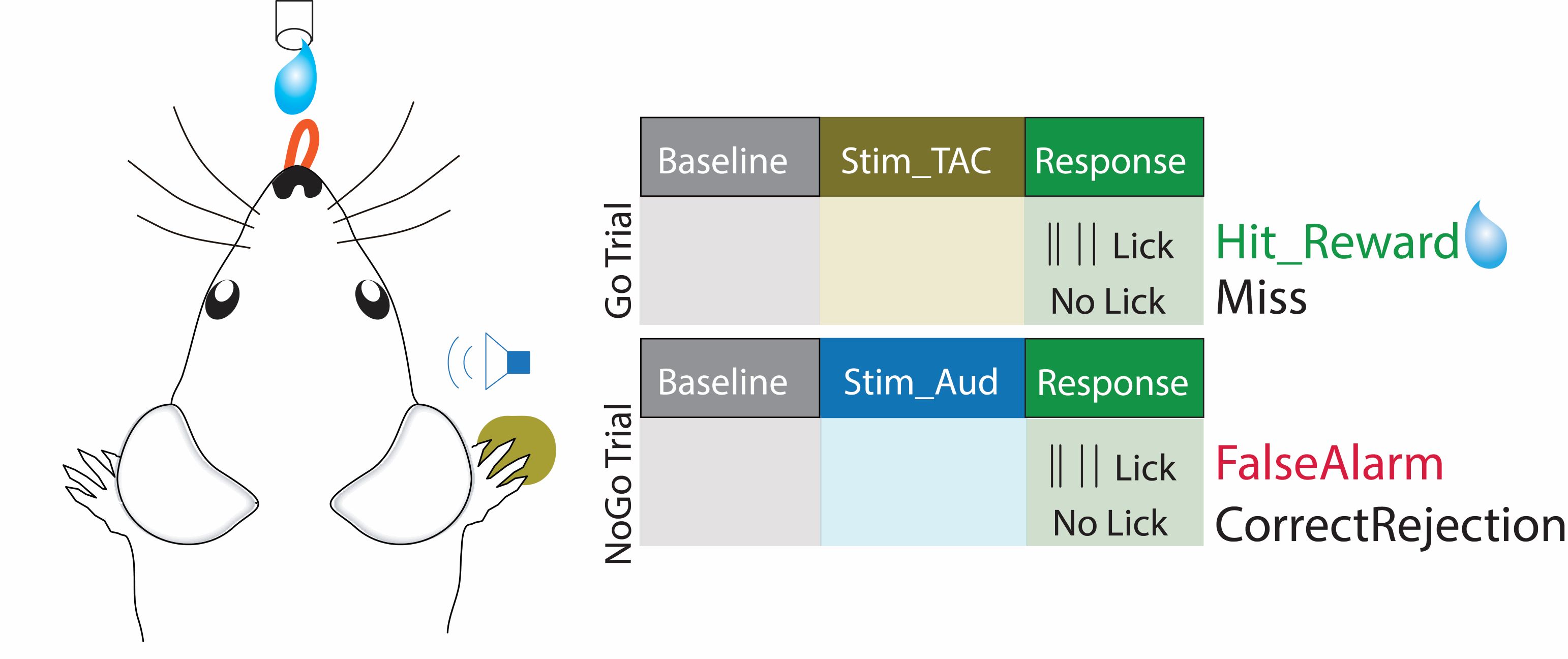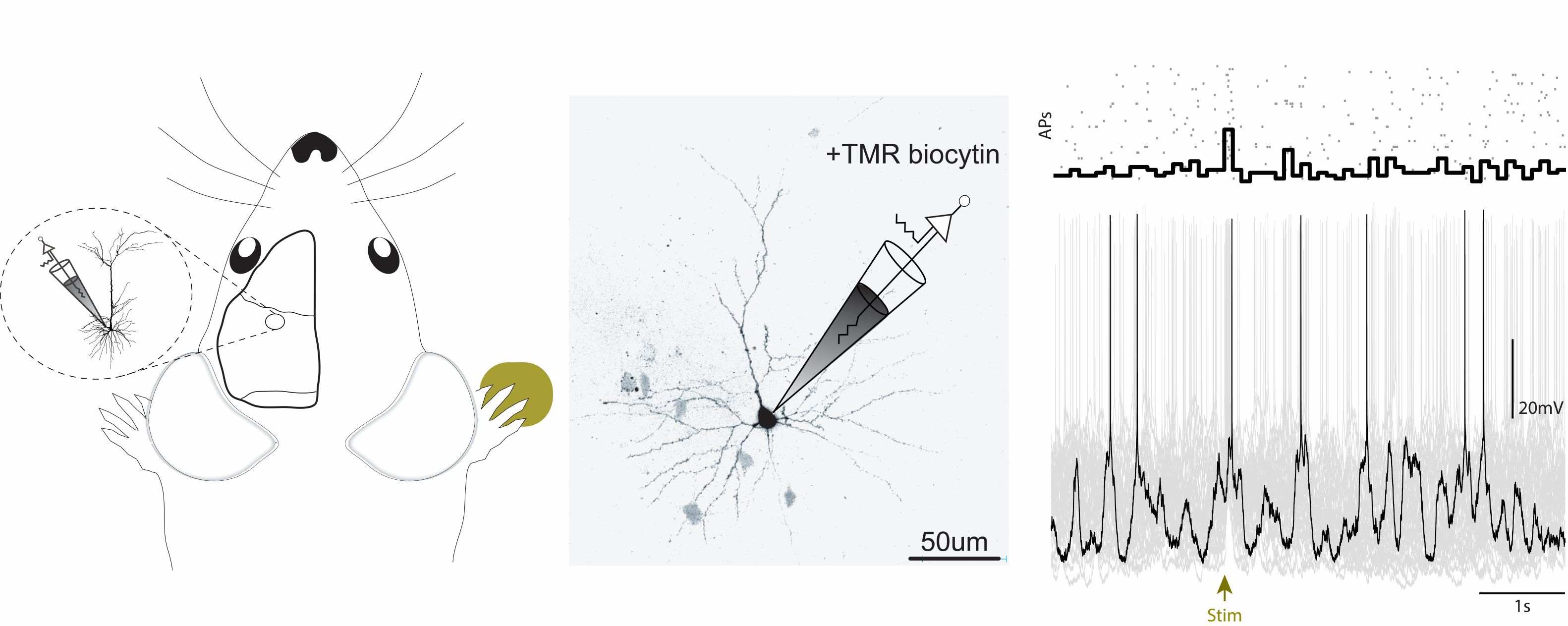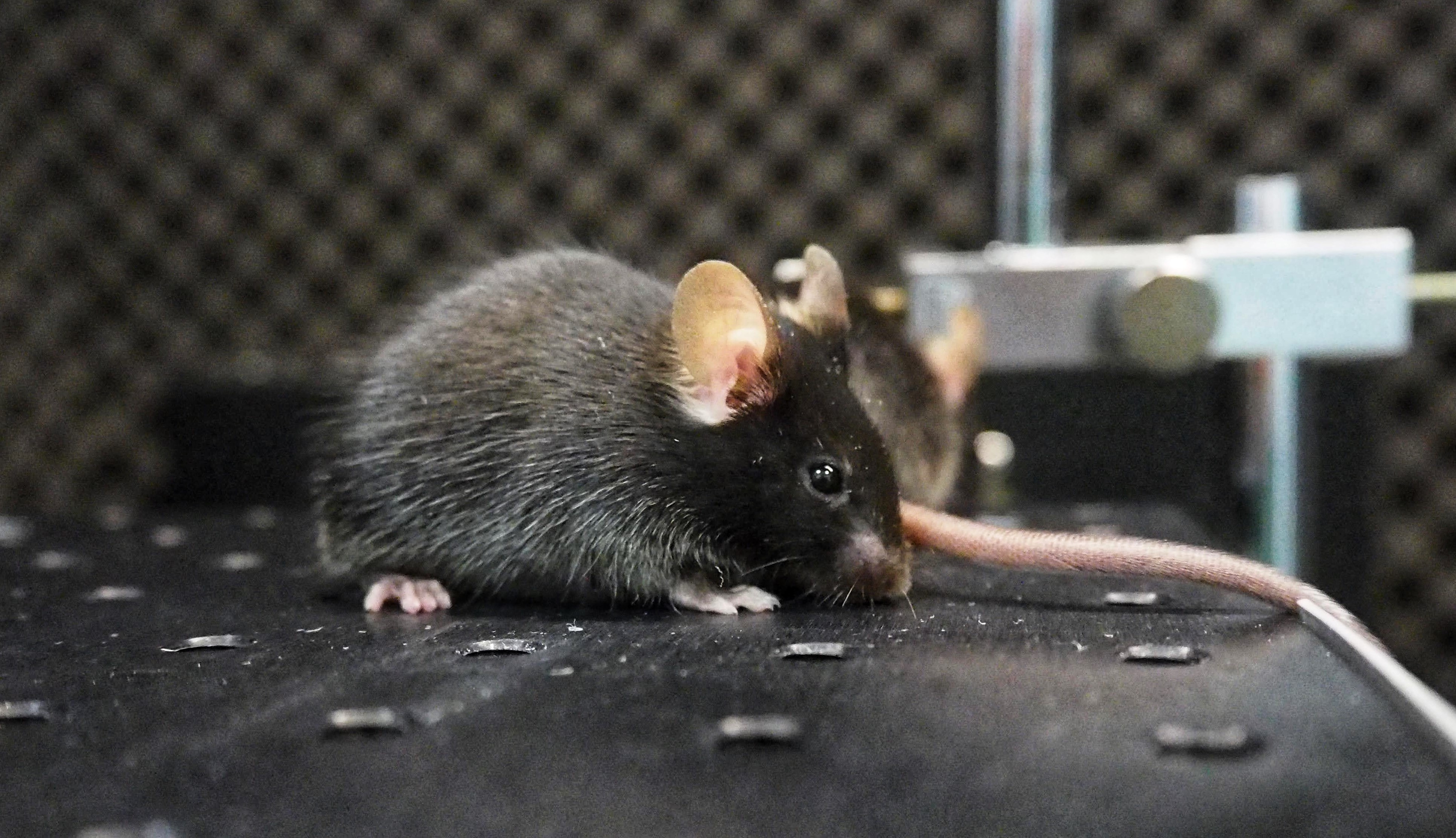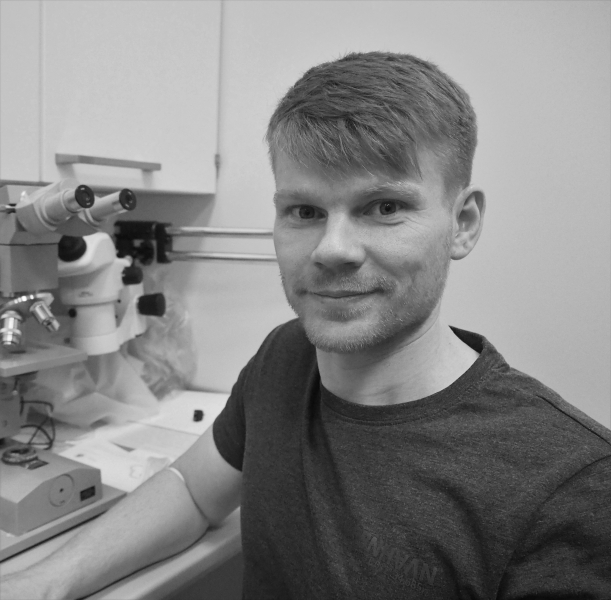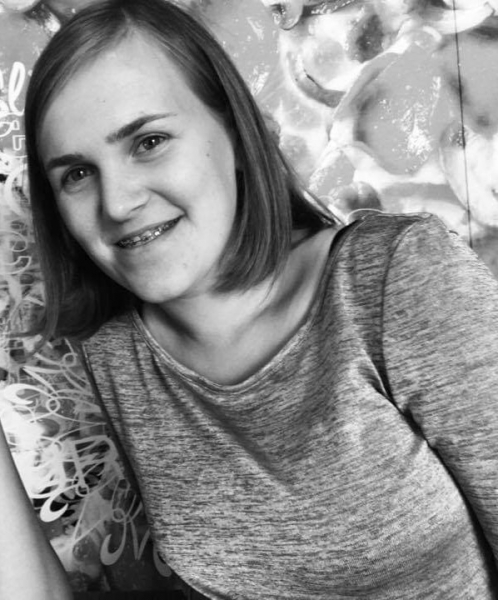To navigate and survive in the environment one needs to process abundant sensory inputs and execute appropriate behaviours. These functions are ensured by computations of neural networks within the brain. Our lab aims to understand how the properties of individual neurons contribute to the function of neural networks and shape our behaviour. Main projects:
- Neural networks of cerebral cortex behind anticipation and impulsivity;
- The role of the somatosensory cortex in sensation and perception;
- Adaptative sensory processing within cortical networks;
- Neural networks behind auditory steady-state response generation and alterations during schizophrenia.
A mechanistic understanding of neural computations underlying sensation, perception, decision making etc. requires an integrated approach. A combination of electrophysiology (EMG, ENG, whole-cell patch clamp, cell-attached etc.), pharmacology, optogenetics, associative-training paradigm and behavioural testing is being employed in the lab to record and manipulate the neural activity of the brain and understand its function. Mice are being used as a model organism in our lab.




